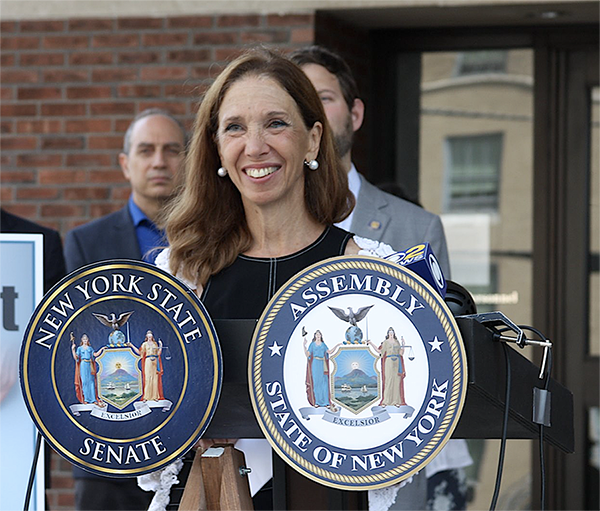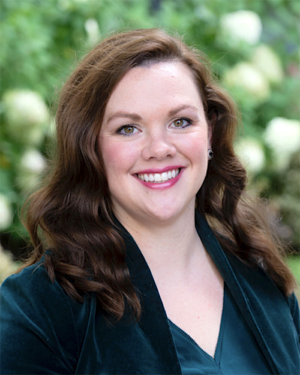
ALBANY — For eight years, the Medical Aid in Dying Act has resurfaced each January with fresh versions filed in both houses of the New York State Legislature.
The bill, if approved, would let terminally ill patients end their lives with fatal, doctor-administered medications, with conditions.
The Catechism of the Catholic Church states that “an act or omission which, of itself or by intention, causes death in order to eliminate suffering constitutes a murder gravely contrary to the dignity of the human person.”
All versions of the legislation have always stalled in committees in both houses, never to see a vote.
But one of the bill’s sponsors, Assemblymember Amy Paulin of Scarsdale, vowed the ninth try in 2024 would be different.
“This is our year, folks,” Paulin said Jan. 16 at a press conference in Albany. “This year, we are passing Aid in Dying.”
Pro-life supporters should take Paulin’s pledge seriously, said Kristen Curran, director of government relations of the New York State Catholic Conference, the public policy arm of the state’s bishops.
“It has been nine years now and nothing has been accomplished on their end,” Curran said. “So, I think they’re getting frustrated and a little bit exasperated.”
“Definitely,” she added, “I’d say they’re making a bigger push.”

Curran pointed to recently published op-ed articles in favor of the bills. Those pieces follow recent polling from Siena College that claims New Yorkers support the Medical Aid in Dying Act by a 2-1 margin.
This data is added to similar findings in previous years by Marist College and Quinnipiac University.
“You could argue about how a poll is conducted and the language used,” Curran said. “But certainly, there’s that support being shown through those polls.”
Paulin represents Assembly District 88 — a chunk of Westchester County. The Brooklyn native is also the new chair of the Assembly Committee on Health, one of the bill’s first stops in the legislative process.
Paulin said at the Jan. 16 press conference that “countless New Yorkers have needlessly suffered” during the past eight years.
She recalled how her own sister longed for a way to bring an early end to a bout with a painful form of terminal cancer.
Catholic leadership — from Pope Francis to the U.S. Conference of Catholic Bishops — do not agree.
They’ve countered that any form of suicide assaults the sanctity of human life from “conception to natural death.”
For example, the U.S. Conference of Catholic Bishops has long stated that any form of suicide is “a terrible tragedy” — one that “a compassionate society should work to prevent.”
The bishops have also said that doctors prescribing fatal medications for assisted suicide violates the Hippocratic oath.
Curran speculated, however, that assisted suicide legislation could stall again.
This issue, she asserted, is not like abortion because people who support terminating pregnancies have effectively dehumanized the unborn.
“To them, it’s not a life — it’s a clump of cells,” Curran said. “Then they’ve framed it by making it more about the mother and her bodily autonomy.”
But getting support for a terminally ill patient’s bodily autonomy “really gets sticky,” Curran said.
She explained that suicide is a sensitive subject for people of all political stripes.
“Everybody has such varying feelings about it,” Curran said. “It’s such a controversial thing for so many of them that they don’t even want to have the vote.”
Still, Curran said, pro-life supporters must not take anything for granted, and not just because of the recent polling and the intensified support.
She noted that the bill could not have a stronger ally than Paulin as the new health committee chair — and its original sponsor — to shepherd it into the Assembly chamber for a vote.
Curran urged concerned voters to visit the New York State Catholic Conference website to sign up for the organization’s “Catholic Action Network.” Its digital tools simplify staying on top of issues and contacting elected officials.
Concerned voters can contact elected representatives about assisted suicide and other issues through the Catholic Action Network (CAN), an arm of the New York State Catholic Conference. Go to nyscatholic.org and click on “Take Action!”

Again Bill Miller presents a strong case against suicide both as a religious and social issue. How can society make suicide exceptional? Again suicide violates our concept of life from conception to natural death!